13 Numbers That Rival the Number 13
Friday the 13th
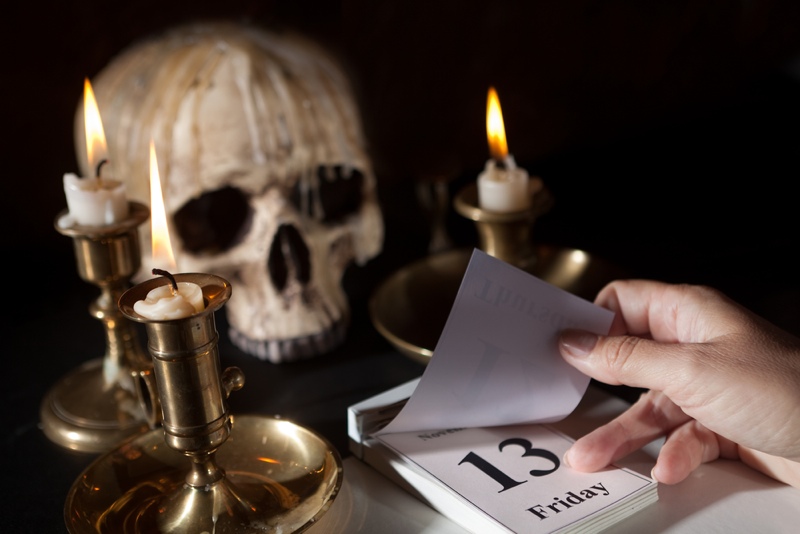
Ah, Friday the 13th. A day of superstition, bad luck and careful avoidance of black cats and broken mirrors.
Well, in some cultures, anyway. Though 13 has a long but foggy history of association with bad luck in Western societies, it's not the only number to be imbued with irrational meaning. Here are 13 other numbers that people have fixated on as lucky, unlucky or just plain evil.
Four

In Mandarin, the number four is pronounced "si," very similar to the word for death, which is also pronounced "si," but with a different intonation. The similar sound has lent four an unlucky aura. Just as buildings in America might omit the 13 when numbering floors, buildings in China often lack a fourth floor.
The aversion to the number even affects traffic in Beijing, according to a 2015 working paper. Drivers avoid picking license plates with four in the number string. Drivers are also restricted from certain major thoroughfares on certain days based on the final number on their license plates. Fewer cars have license plates that end in four because of superstition, so days when "four" is the restricted number experience higher traffic.
Eight

While on the subject of China, let's look on the flip side. Double four, and you get eight, seen as a particularly lucky number. Again, it's all in the phonetics: Eight is pronounced "ba," which is similar to the word for wealth, pronounced "fa." (They're closer than an English-speaker might think, because the intonation is the same, as well as the vowel sound.)
Beijing opened its Olympic ceremonies in 2008 at 8 o'clock on the 8th day of the 8th month of the year.
Thirty-nine

According to a 2011 article in The Guardian, 39 is the number to avoid in Afghanistan. The reasons are fuzzy, but there is a story about a (possibly mythical) pimp who had a license plate with the number 39 and lived in an apartment numbered 39. Whatever the reason, the number has come to represent prostitution and pimping in Afghanistan, to the extent that people pay bribes to avoid a license plate with that number, according to a driver quoted in the article.
Get the world’s most fascinating discoveries delivered straight to your inbox.
Eleven
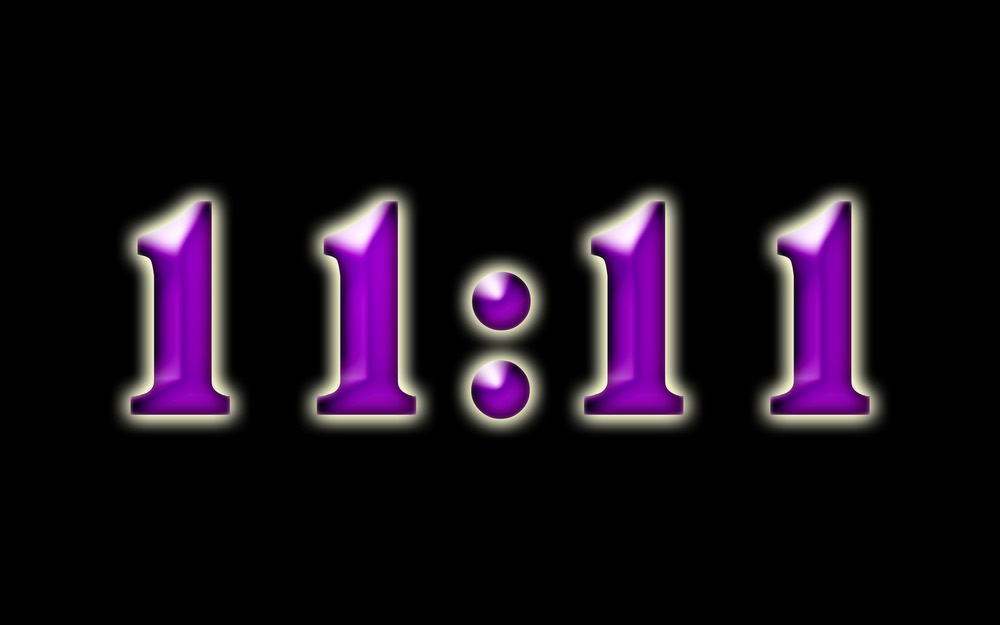
It's everywhere. Or, at least, that's what people think. The number 11 has become a focus of superstition by people who believe they're seeing the number everywhere — glancing at a clock at precisely 11:11, for example. Eleven probably sticks out in people's minds because it's a memorable pattern, John Hoopes, a scholar of Maya history at the University of Kansas, told Live Science in 2011. (A scholar of Maya history was weighing in on this question because the number 11 had also become associated, in some circles, with the Mayan apocalypse. Long story.)
666
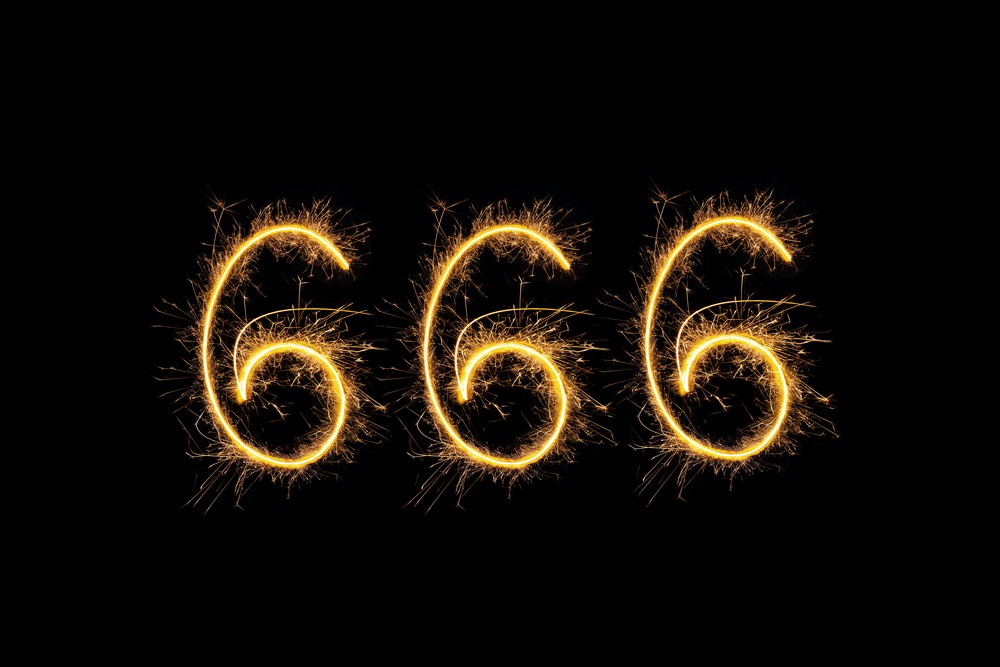
A powerful number in Christian theology, 666 has the power to send chills down many people's spine. The number is seen as evil, thanks to Revelation 13:18. As the King James Bible puts it: "Here is wisdom. Let him that hath understanding count the number of the beast: for it is the number of a man; and his number is six hundred threescore and six."
It won't surprise any math-minded reader of Revelation that the beast in question has seven heads.
Ten
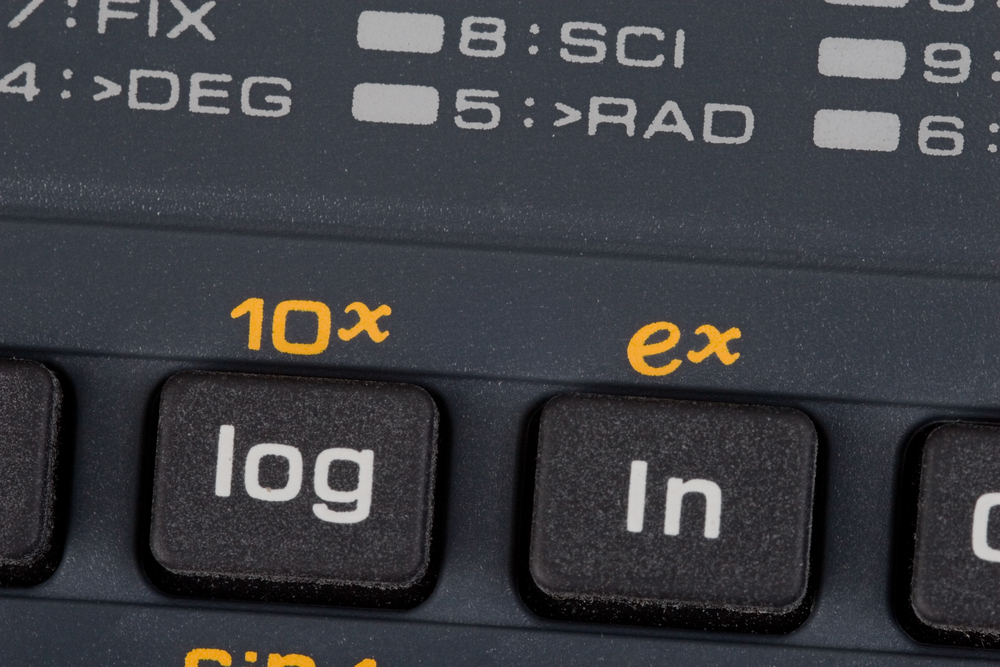
When little kids learn to count, the goal is usually to get them to 10. Seems like a nice, complete number, right? That's no accident. Our numerical system is in base 10, probably because people have 10 fingers. Ten thus holds a sense of completeness for most people — 10-year anniversaries, for example, usually get an extra shot of celebration.
Ten also appears frequently in Jewish practices, including the 10 plagues of exodus and the 10 days of repentance between Rosh Hashanah and Yom Kippur.
Seven
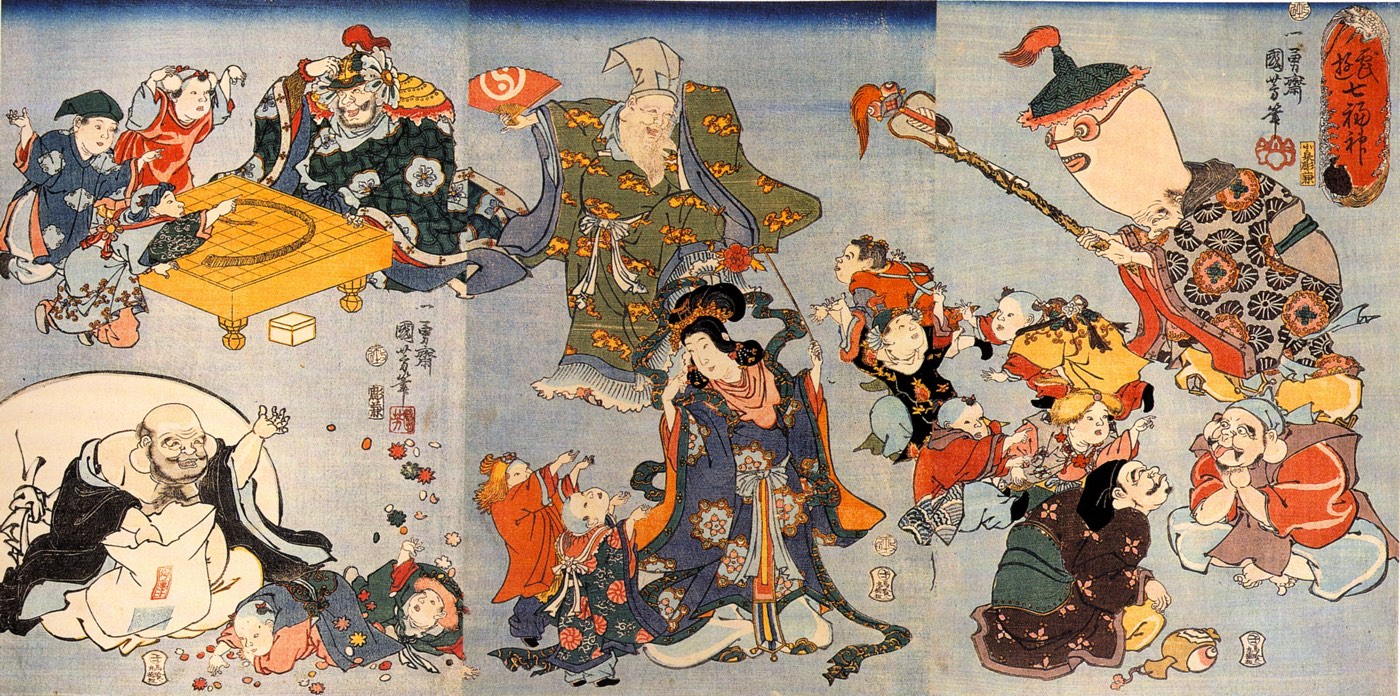
Lucky seven. No, really. Seven is seen as lucky in multiple cultures. According to biblestudy.org, the number gets 735 mentions in the Bible (860 if you count "sevenfold" and "seventh"). According to religious beliefs, it's the number of days it took God to create the universe, the number of miracles Jesus performed on the Sabbath, and the number of trumpets blown before the dead are resurrected in the Book of Revelation. Revelation is really big on seven, actually. There are also seven angels, seven churches, seven thunders, seven seals and seven plagues.
Seven is also lucky in Japan, due to seven deities known as the Seven Lucky Gods (shown here in this woodblock print). In China, seven is a lucky number because it's pronounced "qi," which is the same as the Chinese words for "arise" or "life essence." And seven turns up frequently in folklore. The seventh son of the seventh son always seems to get the kingdom.
Nine
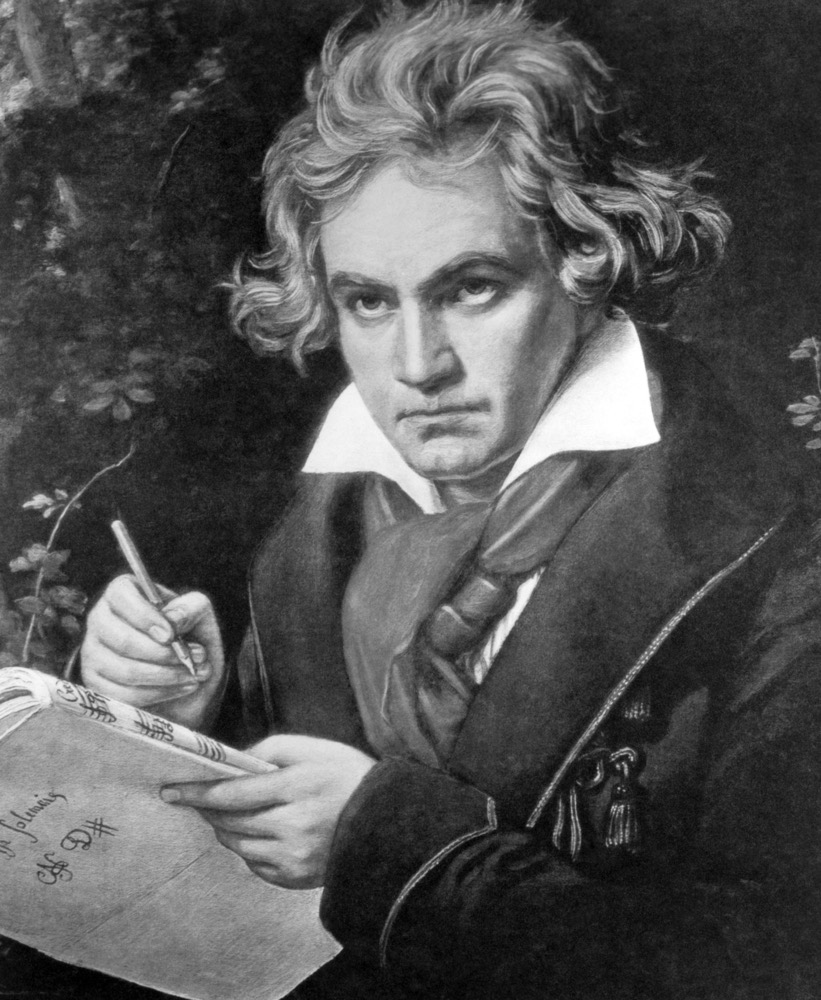
A superstition about symphonies holds that composers only get nine. After their ninth composition, this superstition goes, the composer will die.
Ludwig van Beethoven is an obvious example of a composer for whom this was true, but other examples are sketchier. Franz Schubert has been held up as an embodiment of the superstition (he died at 31), but his last completed symphony was numbered 7, 8, 9 and 10 at various printings. He also had an unfinished symphony that is usually numbered between 7, 8 and 9 that would have to count toward his total for the "curse of the ninth" to be true. And, of course, many composers have written more than nine symphonies, including Finnish composer Leif Selim Segerstam, whose number currently stands at 296. [The 9 Most Massive Numbers in Existence]
Three
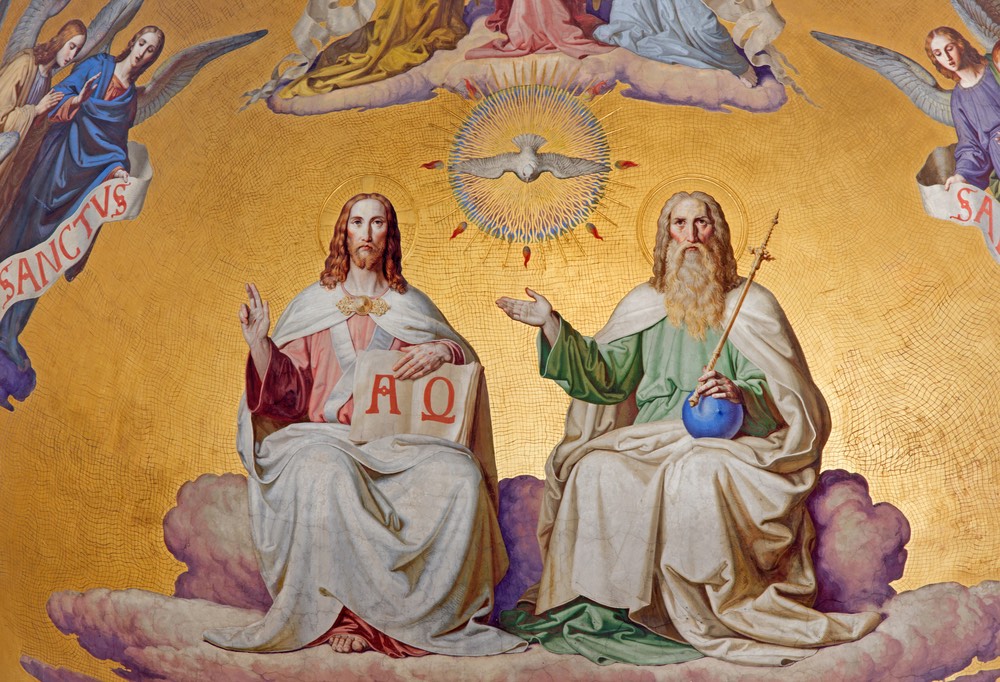
Good things come in threes. Three strikes, you're out. Like seven, three has a long history of weighted meaning. In the Bible, it's a symbol of completeness (the Father, Son and the Holy Ghost, for example, or the three days it took Jesus Christ to rise again).
Three is also a lucky number in China, and is an important number in Taoism and in Buddhism. There are three basic virtues in Taoism (humility, frugality and compassion) and "Three Jewels" in Buddhism, which represent the three things Buddhists use for guidance (Buddha, Dharma and Sangha).
Twelve
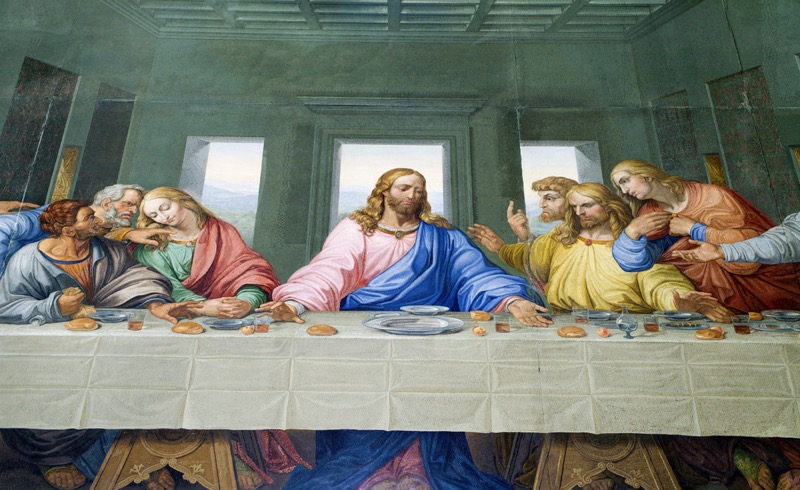
Like three, 12 is another number that symbolizes completeness. It appears in the Bible multiple times, from the 12 sons of Jacob to the 12 disciples of Jesus. It's built into the daily clock and the yearly calendar. There were 12 principle gods in ancient Greek mythology, and there are 12 names for the Hindu sun god Surya.
Twelve is also mathematically cool. It's what's called a superior highly composite number, meaning it has more divisors than any other number once you control for the size of the number, mathematically speaking. In other words, accounting for the fact that larger numbers can be divided by more numbers than smaller numbers, superior highly composite numbers are standouts, as far as divisibility is concerned. Twelve is divisible by one, two, three, four, six and 12. [5 Seriously Mind-Boggling Math Facts]

Stephanie Pappas is a contributing writer for Live Science, covering topics ranging from geoscience to archaeology to the human brain and behavior. She was previously a senior writer for Live Science but is now a freelancer based in Denver, Colorado, and regularly contributes to Scientific American and The Monitor, the monthly magazine of the American Psychological Association. Stephanie received a bachelor's degree in psychology from the University of South Carolina and a graduate certificate in science communication from the University of California, Santa Cruz.
 Live Science Plus
Live Science Plus





